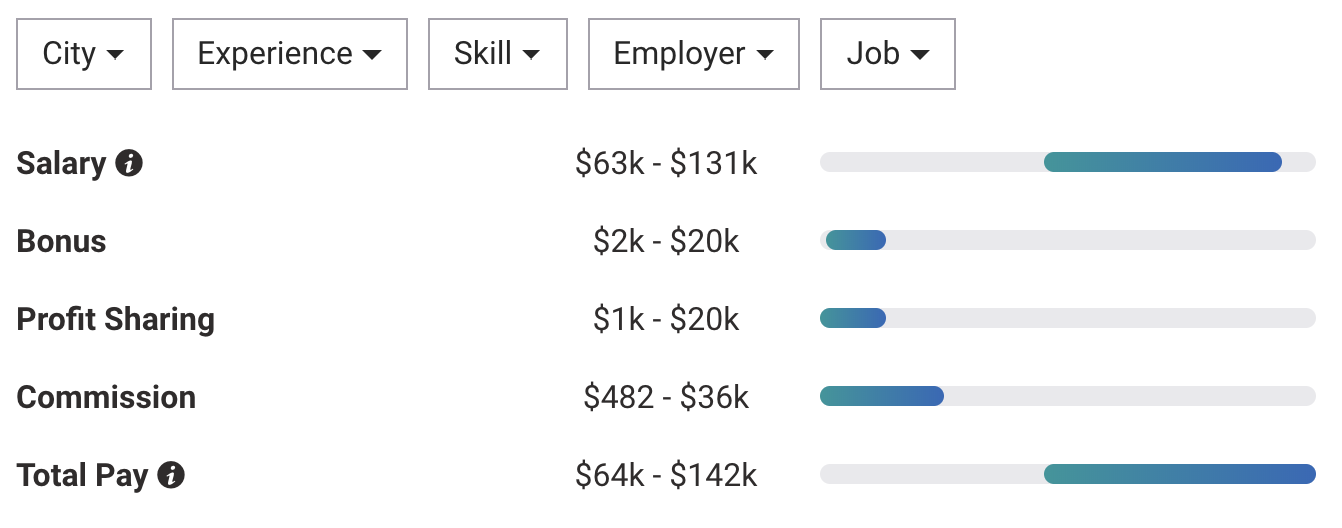Don’t let this be you upon discovering that your colleagues negotiated their offers and you didn’t. Do your future self a favor and negotiate today.
Step 1: Default to negotiation
Congrats on your offer!
Time to sign on the dotted line, right?
As someone who’s naturally conflict-averse, I know that it’s easy to see negotiation as an optional and undesirable extra step in the already-too-long job search process.
But before you skip over it, imagine the following: It’s the first day of your new job and you discover that your colleague negotiated a 30% higher salary - and you didn’t.
And thus, if for no other reason than psychological protection from regretting that you didn’t negotiate, make negotiation a default part of your process.
Step 2: Get Negotiation Leverage
The very best thing you can do to help your case is to get leverage.
In other words, what’s your alternative to taking this offer?
Because the more you have going for you, the less likely a company is to call your bluff.
Here’s the best leverage you can bring to the negotiating table, in descending order of value:
An offer from a well-known competitor
An offer from another organization
A better opportunity inside your existing organization
A decent existing role inside your organization
A final interview/pending offer at other organizations
No matter which of the above you have, you should be sure to tell your recruiter about them. Because the leverage only comes from the recruiter knowing about and sweating your alternatives!
Want to apply some pressure to your recruiter - as opposed to the other way around? Get some leverage!
Make sure to look at every part of the compensation package - and then slice by location, experience, and employer to find the most favorable comparables.
Step 3: Get Negotiation Data
The other way to get the upper-hand in a negotiation is to have great compensation data.
You can find this data for similar roles by checking out sites like Glassdoor, LinkedIn, and PayScale. Just be to sure to shop around for the most favorable comparisons (i.e., the higher, the better!).
Here are the specific data points you want to consider, again in descending order of value:
Compensation at the offering firm
Compensation at firms where you have offers
Your compensation today
Compensation in your location
Compensation at competitor firms
Compensation in your industry
Compensation in your function, broadly
And remember to price out all parts of the package - base salary, bonuses, and equity - so you can negotiate on all aspects.
Step 4: Negotiate Slowly
The biggest negotiation mistake that candidates make is deciding too hastily - especially because the decision is much more important for you than for the recruiter, who’ll be moving on to other things immediately.
So take your time with this recommended approach:
When you get the offer over the phone, thank the recruiter and ask them for at least a week to decide. This will buy you time to get organized and approach this thoughtfully.
Immediately share news of the offer with any other firms you’re excited about - and ask them to make their decision soon.
Think about your comparables (both from leverage and data) and ask the recruiter for the best case scenario, using those data points as justification.
He/she will likely come back with a counter-offer that hopefully improves over their first one.
At this point, you can accept the counter-offer (if it feels generous relative to your research), offer your own counter (potentially using any new offers you’ve received since the first conversation), or let them know you’ll think about it (if you’re still not sure).
And no matter what you decide, you can feel in control of your own destiny vs. giving in too soon and regretting it later!
A smart negotiation is a lot more like a chess match than a sprint. You’ve worked so hard to get here. So give yourself time to reflect and strategize instead of feeling like you’re under the gun.
Think of your career like a growing plant that craves sunlight AND water AND soil. In order for your career to thrive, you need the whole package - yes, fair pay, but also challenge, camaraderie, and balance.
Step 5: Negotiate For the Best Fit
As important as it is to feel like you earned a fair offer, you never want to lose sight of the most important goal: Earning the right offer.
So as you negotiate, always think about which offer will be the best fit for you across every dimension that matters to you:
Role - Will you love doing this actual work?
Teammates - Will you enjoy working with these colleagues?
Mission - Will you feel inspired working towards these goals?
Lifestyle - Will this job give you the life you want, not just the pay?
And thus, when you make your final decision, don’t only look at that number on the contract. Instead, put it all into the larger context of “Which job will give you what you need to have a fulfilling life and career?”
















